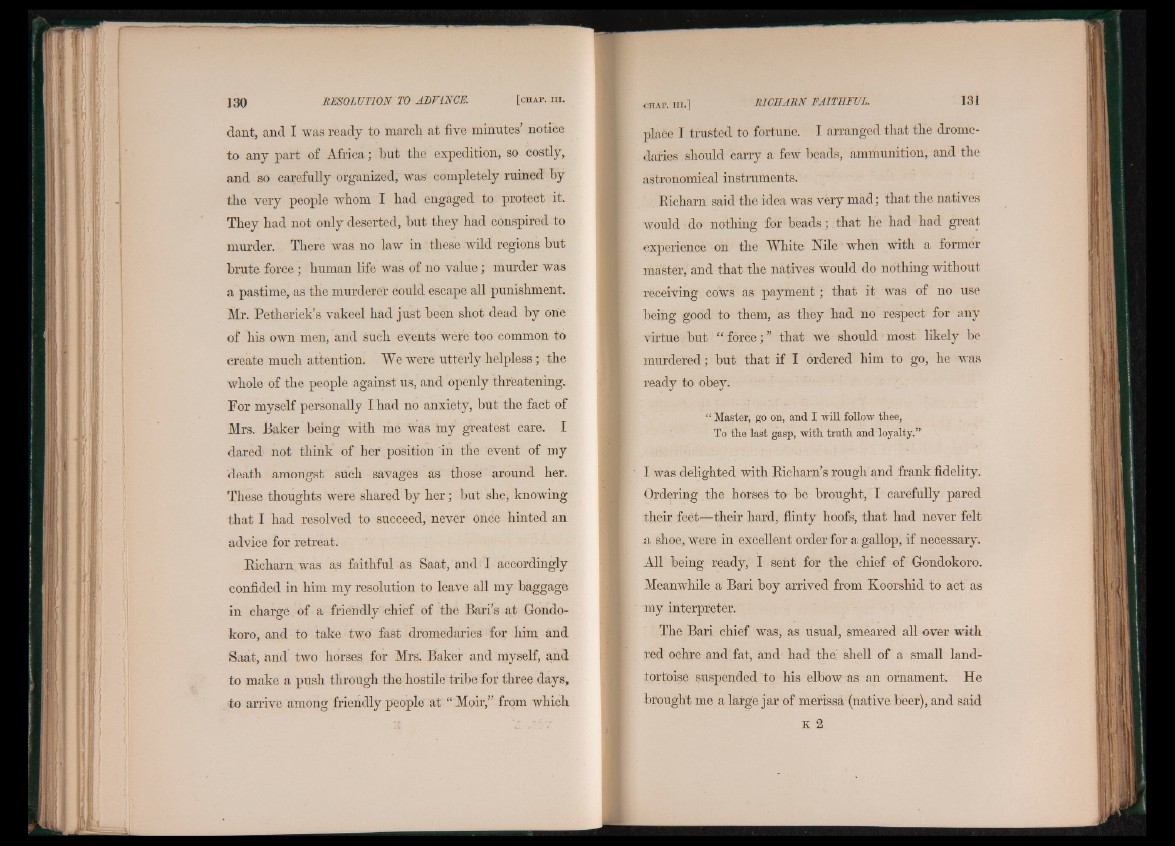
dant, and I was ready to march at five minutes’ notice
to any part of Africa; hut the expedition, so costly,
and so carefully organized, was completely ruined by
the very people whom I had engaged to protect it.
They had not only deserted, brit they had conspired to
murder. There was no law in these wild regions but
brute force ; human life was of no value; murder was
a pastime, as the murderer could escape all punishment.
Mr. Petherick’s vakeel had just been shot dead by one
of his own men, and such events were too common to
create much attention. We were utterly helpless ; the
whole of the people against us, and openly threatening.
For myself personally I had no anxiety, but the fact of
Mrs. Baker being with me was iny greatest care. I
dared not think of her position in the event of my
death amongst such savages as those around her.
These thoughts were shared by h e r; but she, knowing
that I had resolved to succeed, never once hinted an
advice for retreat.
Richarn was as faithful as Saat, and I accordingly
confided in bim my resolution to leave all my baggage
in charge of a friendly ehief of the Bari’s at Gondokoro,
and to take two fast dromedaries for him and
Saat, and two horses for Mrs. Baker and myself, and
to make a push through the hostile tribe for three days,
to arrive among friendly people at “ Moir,” from which
place I trusted to fortune. I arranged that the dromedaries
should carry a few beads, ammunition, and the
astronomical instruments.
Richarn said the idea was very mad; that the natives
would do nothing for beads; that he had had great
experience on the White Nile when with a former
master, and that the natives would do nothing without
receiving cows as payment; that it was of no use
being good to them, as they had no respect for any
virtue but “ force;” that we should most likely be
murdered; but that if I ordered him to go, he was
ready to obey.
“ Master, go o h , and I will follow thee,
To the last gasp, with truth and loyalty.”
I was delighted with Richarn’s rough and frank fidelity.
Ordering the horses to be brought, I carefully pared
their feet-—their hard, flinty hoofs, that had never felt
,a shoe, were in excellent order for a gallop, if necessary.
All being ready, I sent for the chief of Gondokoro.
Meanwhile a Bari boy arrived from Koorshid to act as
my interpreter.
The Bari chief was, as usual, smeared all over with
red ochre and fat, and had the shell of a small land-
tortoise suspended to his elbow as an ornament. He
brought me a large jar of merissa (native beer), and said
K 2